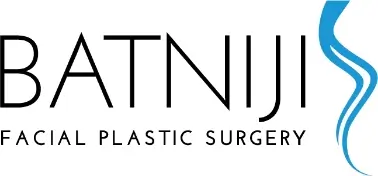Surprises are great when it comes to a lot of things in life, like gifts, special dinners, and even haircuts. They’re not so great when it comes to something like plastic surgery, and trusting a person to change your face can be one of the scariest things you can do. Fortunately, there are many talented plastic surgeons in the United States who can take a patient’s vision and create an outcome that meets those needs while appearing natural.
Achieving that ideal outcome can be a difficult journey, however, and communication between surgeon and patient is essential to making the process work. Modern tools have made it easier than ever to stay on the same page about procedures, and tools like digital imaging help doctors and patients communicate more effectively. So how are these previews used in the planning process for procedures such as rhinoplasty?
What is Digital Imaging?
Digital imaging software is a photo manipulation tool that surgeons use to produce a preview of the results of the surgery being planned. This allows the patient and doctor to discuss and approve or reject various aspects of the surgical plan and set goals using fairly accurate representations of what might be expected following surgery.
Benefits of Imaging
Sometimes, putting ideas into words is difficult, and because of this, communication between doctor and patient can be wrought with misunderstandings, confusion, and other issues. Digital imaging helps bypass this by giving doctors the tools to easily discuss their ideas with patients. Seeing a preview also boosts patient confidence and helps with the decision-making process of whether to move forward with surgery.
Limitations
Of course, it’s not possible to predict everything that can occur during or after a plastic surgery procedure. There are infinite variations to the facial structure, and a number of different factors affect the procedure and the recovery process, therefore making an impact on the final results. Obviously, imaging software cannot account for these factors, and not meeting the patient’s expectations is never something a surgeon wants to experience.
Who Uses the Technology?
Today, most surgeons do use digital imaging technology during their consultations for facial surgery, particularly complex and custom procedures such as rhinoplasty. Some surgeons, particularly those veteran providers with decades of experience and a good eye for results have not adopted this tool, and this does not mean that they are not worthwhile surgeons. However, most talented members of the facial plastic surgery community started out their careers using this technology, or noticed there was demand from patients and that it enhanced communication and patient trust.
Staying Realistic
The big catch of digital imaging is managing expectations. Patients seeing the preview of their potential results will use that for a benchmark of their results. Unfortunately, it’s not realistic or even possible for the actual results to match up exactly with the preview composed at the consultation. Patients need to be realistic and manage their expectations to expect marked improvement over perfection, in order to avoid disappointment over a successful result.
Promoting Open Communication
If you’re considering plastic surgery and are getting ready to start consulting with potential surgeons, there are a few things to keep in mind. First, because communication is so important to the plastic surgery process, you need to speak up about what you do and do not want. Don’t keep quiet and accept every recommendation handed to you—give and take is what will help you achieve your goals.
Rapport is an under-emphasized quality that actually matters a great deal when selecting a surgeon. Finding a provider you have rapport with makes it much easier to communicate and build trust, setting you up for success.
Aside from communication, of course, technical skill and artistry are of the utmost importance, which is why you should only choose a board certified facial plastic surgeon to perform your facial procedures. An experienced facial specialist will be able to help you get the results you’re looking for. Dr. Rami K. Batniji is a dedicated plastic surgeon with years of experience in helping patients improve their appearance and self-esteem. If you would like to talk to an expert in the Newport Beach (949-650-8882) or Beverly Hills (310-467-2180) area, come to Batniji Facial Plastic Surgery and speak with Dr. Batniji about your goals for surgery. Call either location today to schedule a consultation.

